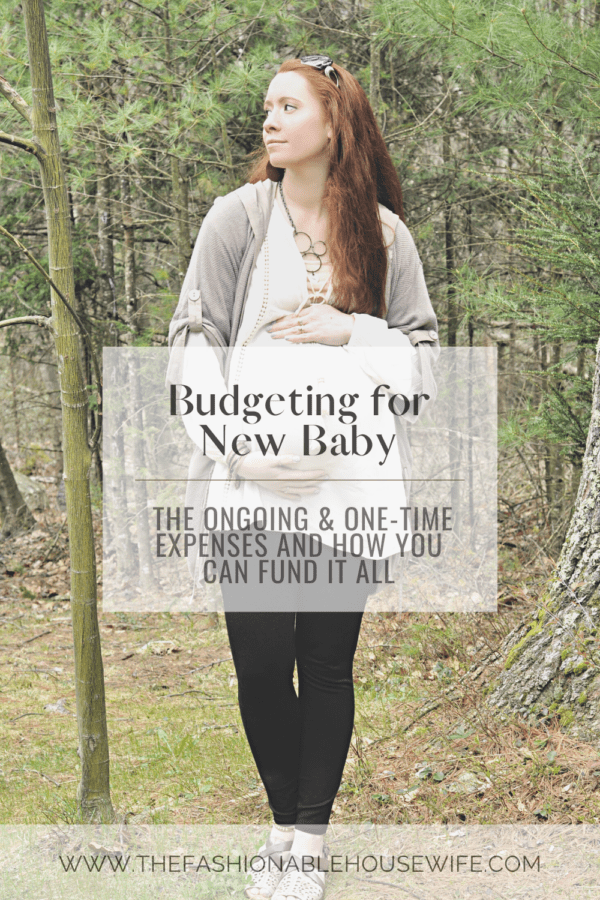
Being a parent should mainly cause excitement and delight, but it’s reasonable to feel a bit of stress, especially considering the baby’s budget. The most important thing is to set up your budget as much as you can before your due date. The article below discusses the necessities your baby will require to feel at home and some advice on how you can fund them when you’re starting a family.
One-Time Baby Expenses
One-time expenses for a baby include the following:
Furniture
Baby furniture includes a stroller, crib and mattress, baby rocker, and feeding chair. Look for infant furniture that meets all safety requirements and keeps your child comfortable.
Safety Equipment
Babies are curious, especially once they begin to move around. You may need to purchase equipment to ensure your child stays safe while they satisfy their curiosity, especially when you are not home. You’ll need to child-proof your cabinets, plugs, and furniture to keep your baby safe and get baby monitors and nanny cams.
Cleaning and Grooming Supplies
An infant bathtub, washcloths, towels, and a baby grooming kit will initially set you back a few thousand dollars. Fortunately, you don’t need to buy these products every day.
Travel Equipment
Travel gear is necessary because you’ll need to move around with your child easily and securely. When traveling, children need strollers, diaper bags, and car seats.
Feeding Paraphernalia
Baby bottles, Breast pumps, and bibs are all items you can purchase in bulk once and use for many years. But, ensure to clean them after every use.
Ongoing Baby Expenses
Consider the following recurring infant costs in your budget:
Childcare
Your child’s age, how much care you need, what kind of care you require, and where you reside affect how much you have to pay for child care.
Clothing
Children develop dramatically in size, especially during the first two years of life, so you may need to refresh your child’s wardrobe as frequently as every three months.
Diapers
Baby’s diapers must be changed frequently, at least five times each day, so diapers will be one of your most significant ongoing expenses.
Baby Food
You’ll need to feed your child, so formula and nutritious baby food will be among your biggest ongoing expenses.
Medical Expenses
Medical costs, which include prenatal care, delivery, hospital stay, tests, postpartum care, and clinic visits, will depend on the location of the delivery facility and your insurance plan. To determine your out-of-pocket expenses, review your coverage.
Ideas for Funding a Baby Budget
Here are ideas on how to fulfill your new baby’s demands:
Try to Survive on Less
After having a kid, your income may shift, even if only momentarily. One parent may take unpaid leave or altogether quit their job. Practice living on a lesser income in the months before your due date, and save for the impending baby expenses.
Spend Less and Increase Income
Sometimes, you might need more funds. Reducing spending and raising income are the two fundamental methods for balancing your new budget. If you haven’t already, carefully consider the following choices:
- Find fresh ways to earn more money.
- Ask for a salary raise or look for a job that pays more.
- Downgrade or consider selling an automobile
- Refinance your mortgage or other possible loans
- Consolidate and compare different auto and house insurance policies.
- Get rid of any monthly subscriptions you don’t need, such as unused gym memberships.
Online personal loans with friendly terms may also come in handy when you need more such as SoFi online personal loans.
Reduce Expenses
As your child ages, fees like formula, diapers, and day-care will disappear from your budget. Ultimately, things like dance lessons and car insurance will replace them.
But, for now, estimate your possible spending during the first year, and find strategies to cut expenses, such as:
- Shop at second-hand stores or get hand-me-downs.
- Ask family or friends to assist with last-minute childcare
- See if you can borrow expensive baby furniture like a crib or rocking chair from families who are no longer using them.
- Ask for essentials at your baby shower (s).
- Compare the price of adding a child to your health insurance policy
It can be challenging to manage all the additional infant expenses. Still, if you can re-evaluate and adjust your budget to consider this new milestone, you can make the process less arduous.




